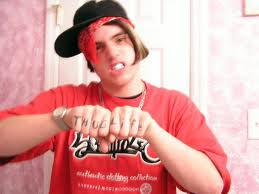NEW YORK, NY – It’s tax season.
Ugh. It’s February. Gross.
Work is at a standstill, you’re spending more then you're making, and
there’s no end in sight. Sigh. When the pressures of life start to build up
and you feel like you just can’t take it anymore, there’s really only one thing
you can do: relax!
That’s right, relax. Kick off
your shoes, make yourself a margarita (you deserve it!), find a cozy spot to
sit, and just chill. A new study
conducted by the American Research Institute has concluded that Americans who
feel they're underachieving in their lives or careers should just relax and
stop stressing about things so much.
“Stuff just has a tendency to work itself out, you know?” claims ARI
researcher Steven Davis in discussing the results of the Relaxation Study. “People just get so stressed out about stuff
these days that sometimes we forget to appreciate the little things, like
cotton candy or hummingbirds.
“It’s not always about sending out that memo in time, or making sure a
shipment has gone through. When we start
worrying too much about trivial things like fact-checking or improving
quarterly profit margins, that stuff – we call it “work-goo” at ARI – can start
to clog up our brains. That’s no
good. If work-goo starts clogging our
brains, then thought-bubbles have no room to escape our minds, and we are
thusly less productive. A great way to
relieve harmful work-goo from the brain is simple relaxation. The effects relaxation can have on the
American middle class are tremendous.”
Some Americans may be skeptical of the new findings, some might struggle
to believe that when you want to do more, all you really have to do is less. It’s a valid point. Past generations have been so hell-bent on preaching
the value of hard work, its become so ingrained in our psyche, that some
younger Americans doubt the importance of relaxation.
Sophia Miller, a study participant, understands the trepidation, but
offers another viewpoint. “I was skeptical at first, sure. I was worried that if I stopped caring about
my job, or even showing up at all, that it might result in a pay-cut or
possibly getting fired. Then I just said
to myself, ‘Who cares?’ I mean, what's the worst that can happen? America is like 95% middle class now, so it’s
not like I can fall into the lower class.
And there’s no way I could move into the upper class, the system is too
corrupt. Truth be told, I wouldn’t wanna
be one of those snobby 1%-ers even if I could.
“I’m perfectly content in the middle class,” Miller continued. “It’s cozy here, and relaxing is fun. I don’t have to worry about work
anymore. Even if they do fire me, hey,
no biggie. It’s not like I have to cut
back my lifestyle. Even poor people have
smart phones now, and you can get a flat-screen TV for $300. That’s only like, half of one week’s
unemployment check.”
She’s right. Poor people are
getting richer everyday, and all they have to do is relax a bit. It’s amazing; we’ve perhaps reached an American
utopia. “This is the American dream,”
says Davis. “The most productive guy on
the block wakes up, cracks open a beer, flips on the tube, and gets a hummer. It’s relaxation at its peak, and it’s
beautiful.”
- Pete Higgins










